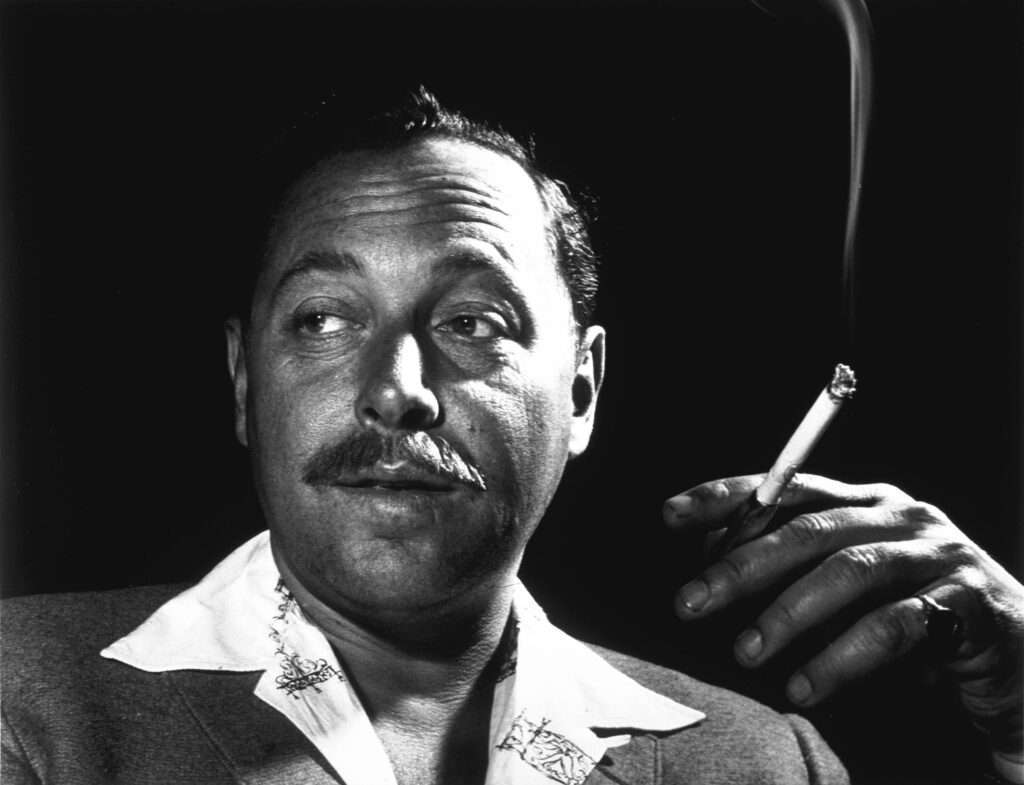Remembering Tennessee Williams: the man who put gay desires on stage
By Nikita Pradhan
Tw: homophobia, suicide, mental illness

Tennessee Williams, one of the greatest American dramatists of the 20th century, is known for plays like The Glass Menagerie, A Streetcar Named Desire, and Cat on a Hot Tin Roof among others.
Born in Mississippi in 1911, Williams had a difficult childhood. His father was an alcoholic and a womaniser, whereas his mother was stuck in an unhappy marriage. In his family, Williams was closest to his sister, who was early in her life diagnosed with schizophrenia and was later lobotomised.
Williams’ dysfunctional family life inspired a lot of his work, including The Glass Menagerie, which critics suggest is mostly biographical. Although the play is not outrightly queer, queerness is by no means absent. The protagonist Tom goes out to the movies each night, only to return drunk. In the play, Tom eventually leaves his hometown to move away from the restrictions imposed by his broken family.
Similar to Tom, Williams also moved out of his house, to eventually settle in New York. The city was his escape and he rebelled in the opportunities he got here. It was during this time that he came to terms with his homosexuality, which became his open secret during a time in American history when it was practically criminal to be such.
A Streetcar Named Desire remains Williams most influential work. The play tells the tale of disgraced debutante Blanche DuBois, who was once married to a man named Allan. It’s later revealed that Allan killed himself after Blanche caught him having an affair with an older gentleman. Unlike his earlier works, this play specifically acknowledged a character’s queerness.
The queer characters in Williams’ works however, almost never had a happy ending. Some critics say it has got to do with the deep rooted shame attached to homosexuality that his south rearing has instilled in him. Others say it’s got to do with how troubled and sad his own life was.
One of Williams’s earliest homosexual relationships was with Kip Kiernan, a young dancer from Massachusetts. Kiernan left Williams to marry another woman, and passed away at an early age of 26, which left Williams distraught. Williams’ most enduring relationship was with Frank Merlo, who was an aspiring actor. Historians say Williams was happiest and most productive during the time he was with Merlo.
Merlo was diagnosed with lung cancer, and his death led to Williams descended into a period of nearly catatonic depression and increasing drug use. In his later years of life, Williams felt increasingly alone.
One could wonder if it’s Williams talking when his character Blanche says “’I have always depended upon the kindness of strangers”. However, Williams was never one to take self pity. In his memoirs, he writes: “I’ve had a wonderful and terrible life and I wouldn’t cry for myself.”
Even today, Williams remains the tormented playwright who put gay desires on stage in the America which was still conservative and highly homophobic. As Hilton Als calls him, Williams is the man who “queered Broadway”.



